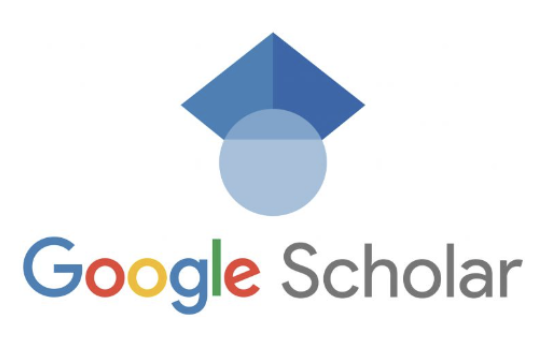Pros and Cons of Using Google Scholar: A Comprehensive Analysis – Google Scholar has become a popular tool for researchers and academics seeking a wide range of scholarly materials. Its free and user-friendly nature, coupled with its ability to provide access to various types of literature, has made it a go-to resource for many. However, like any tool, Google Scholar has its advantages and disadvantages. In this article, we will explore the pros and cons of using Google Scholar, shedding light on its strengths and weaknesses to help you make an informed decision about its use in your research endeavors.
Advantages of Using Google Scholar
1. Wide Range of Materials
One of the primary advantages of using Google Scholar is its ability to search for a vast variety of materials. Whether you’re looking for articles, books, or “grey literature” like conference proceedings, Google Scholar can help you find relevant resources across multiple disciplines. This breadth of coverage makes it a valuable tool for researchers seeking comprehensive information on a particular topic.
2. Related Articles and Citations
Google Scholar goes beyond providing search results by offering related articles and citations. This feature allows you to explore articles that are closely related to the one you’re interested in, providing a broader context for your research. Additionally, Google Scholar displays the number of times an article has been cited and by whom, giving you insights into its impact and relevance within the academic community. Furthermore, Google Scholar provides citations for articles in various styles, simplifying the process of referencing and citing scholarly works.
3. Access to Subscription-Based Content
Google Scholar can also serve as a gateway to articles and books held in institutional subscriptions. While some resources may be behind paywalls, Google Scholar can often display links to these materials, providing access to users who have subscriptions through their respective institutions. This feature is particularly beneficial for students, faculty, and researchers who may not have direct access to certain databases but still need access to specific articles or books for their research.
4. Saving Citations and Articles for Later
Another advantage of Google Scholar is its ability to save both citations and articles for future reference. This feature allows you to create a personal library of research materials, making it easier to organize and manage your sources. By saving citations and articles, you can revisit them later, even if you’re not currently connected to the internet. This feature proves especially useful when conducting research in environments with limited internet connectivity.
Disadvantages of Using Google Scholar
1. Incomplete Coverage
While Google Scholar offers a wide-ranging collection of materials, it is important to note that its coverage is not comprehensive. While it can serve as a valuable research source, it should not be the sole resource relied upon for scholarly research. Researchers should supplement their findings from Google Scholar with other reputable sources to ensure a comprehensive and well-rounded understanding of their topic.
2. Lack of Transparency in Selection Criteria
Google Scholar does not explicitly reveal the criteria it uses to select “scholarly” material. As a result, the quality and suitability of the results can vary significantly. Researchers must exercise caution and critically evaluate the relevance and reliability of the search results. Relying solely on Google Scholar’s results without further scrutiny may lead to the inclusion of irrelevant or low-quality sources in your research.
3. Limited Search Options
Unlike some specialized databases, Google Scholar has few options to narrow or limit search results. For instance, it lacks the ability to filter results by peer-reviewed or full-text materials, which can be crucial in ensuring the reliability and relevance of the sources. Researchers may need to rely on other search tools or databases to obtain more refined search results that align with their specific research requirements.
4. Linking to Paid Content
Google Scholar often links to articles on publisher websites, some of which require a subscription or payment to access. It is essential to exercise caution when encountering such links and refrain from purchasing articles directly. Instead, users should utilize alternative methods, such as their institutional library’s resources or interlibrary loan services, to obtain copies of the desired materials. These options can help researchers access articles without incurring unnecessary costs.
When to Use Google Scholar and When to Seek Alternatives
Google Scholar can be a valuable tool in a researcher’s arsenal, but it is essential to know when to utilize it and when to turn to alternative search engines or databases. While Google Scholar’s wide range of materials and ease of use make it a convenient starting point for research, it is important to supplement its results with other resources to ensure a comprehensive and rigorous approach to scholarly inquiry.
If you require advanced search features, recent articles, or more specialized content, it is advisable to explore the databases that your institution subscribes to. These databases often provide more refined search options, subject-specific collections, and access to the most up-to-date research in your field. Utilizing both Google Scholar and institutional databases can help researchers achieve a more comprehensive and nuanced understanding of their research topic.
In conclusion, Google Scholar offers numerous advantages for researchers, including its broad coverage, access to related articles and citations, and the ability to save citations and articles for later use. However, it is essential to be aware of its limitations, such as incomplete coverage, lack of transparency in selection criteria, limited search options, and links to paid content. By understanding the pros and cons of using Google Scholar, researchers can make informed decisions about when to rely on this tool and when to explore alternative resources for their scholarly research.

